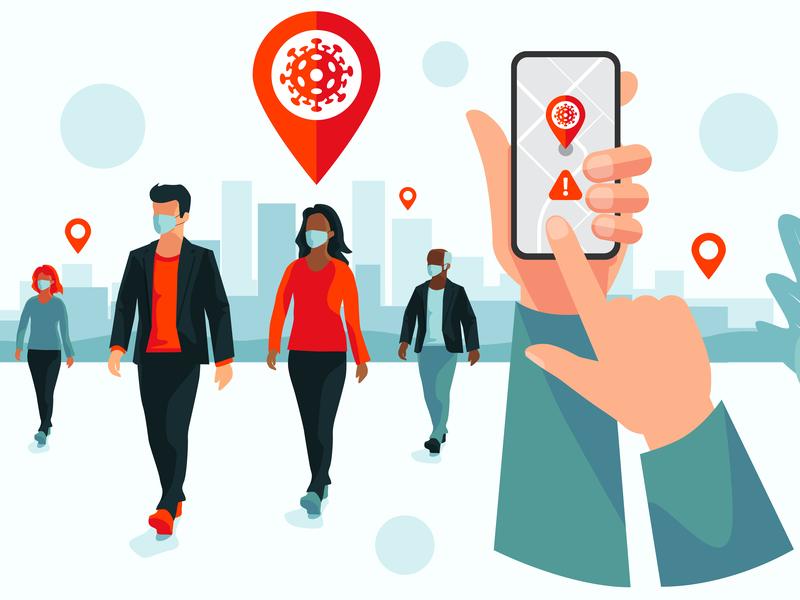The Problem With Government "Contact Tracing"
As states move through phases of reopening, “contact tracing” has remained a topic of national interest. For months now, talking heads in the government and media have hailed the strategy as the country's saving grace. One NBC headline read, "Coronavirus contact tracing could stop COVID-19 and reopen America,” and a CNN article declared, “the US -- or really any country -- can't safely reopen without significant amounts of contact tracing and testing”.
With this starry-eyed perception, dozens of states have rushed to train and hire tens of thousands of contact tracers - what former CDC director Tom Frieden gleefully described as an “army” of tracers.
It’s true that contact tracing has been an indispensable asset many times in the past - helping to snuff out viruses by diligently tracking their spread. So it’s no mystery why some health experts are flocking to it in the current crisis.
In short, this is how it works: contact tracers conduct short, over-the-phone interviews of newly-diagnosed patients about who they have recently been in close, physical contact with. The fear is that these recent contacts could have contracted the virus from the patient before he was diagnosed. These contacts are then phoned by tracers, informing them of this risk and encouraging them to seek testing and self-quarantine immediately. Tracers continue this process on down the line, with the aim of reducing the instances where the virus is transmitted
A few states have also begun developing smartphone apps to conduct a digital form of contact tracing.Phones running the app exchange unique, encrypted numbers via Bluetooth, which are then stored on their devices. If an app user is diagnosed with COVID, he’s supposed to notify the app, which then publishes the log of numbers his phone received in the last fourteen days. If one of these numbers matches one stored on the device of another user, the app will send that user an alert that he’d been in recent contact with a newly-diagnosed COVID patient.
So far, the adoption of these apps has been left completely voluntary in the US, unlike other countries like China and South Korea. Overall, though, most of the states have yet to show much excitement towards digital tracing. The main focus remains on building an “army” to track the virus’ spread, no matter what it might cost the country.
Financial Costs
Contact tracing job positions are temporary—lasting for months or up to a year, with annual salaries ranging from $40,000 to $70,000. Those numbers are about on-par with the entry-level salaries of registered nurses, for a job that anyone completing a free, six-hour course can be hired for. Few, however, have questioned whether such pay is excessive or this use of taxpayer money prudent. It's all been blindly okayed under the hallowed pretense of “public health”.

Comments
Post a Comment